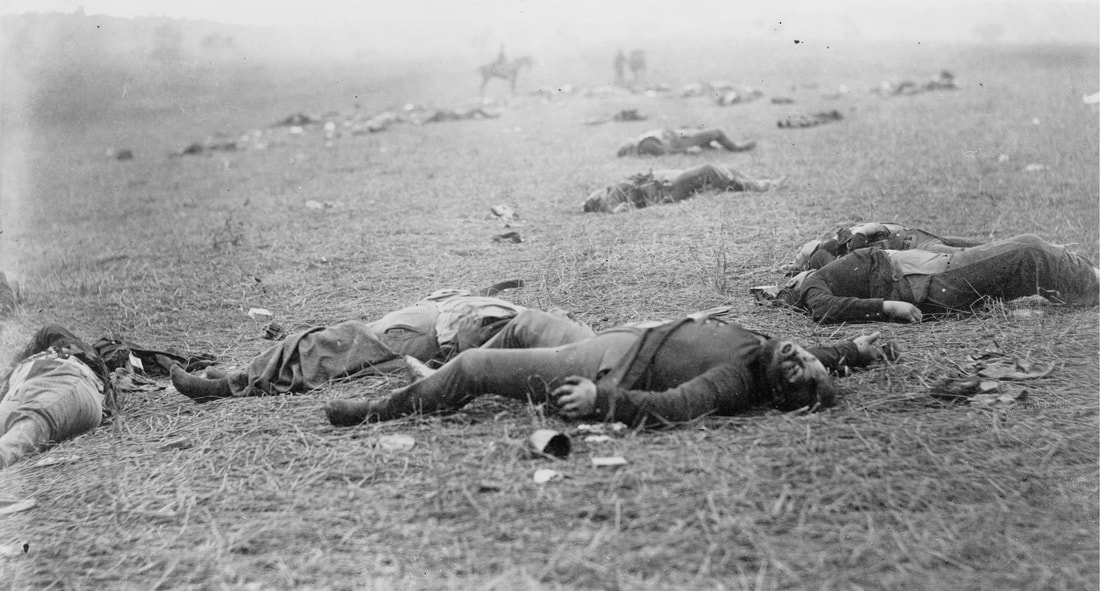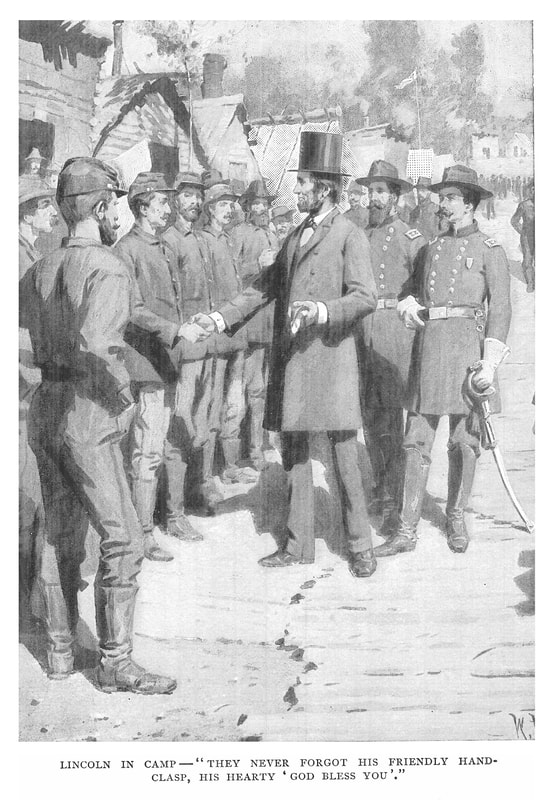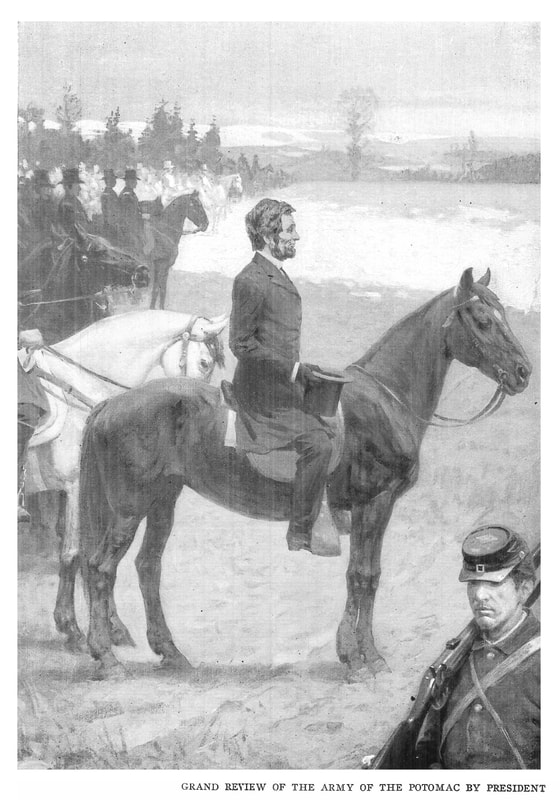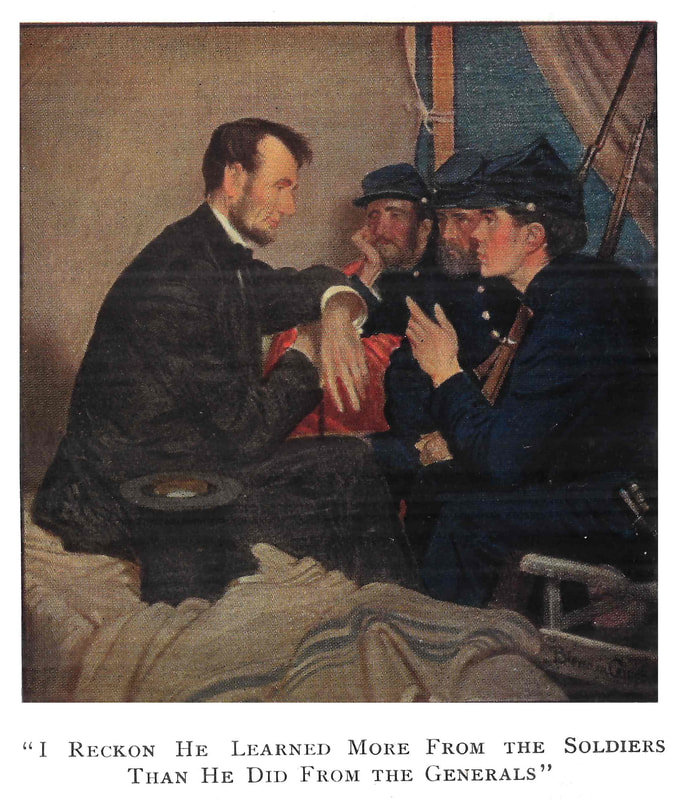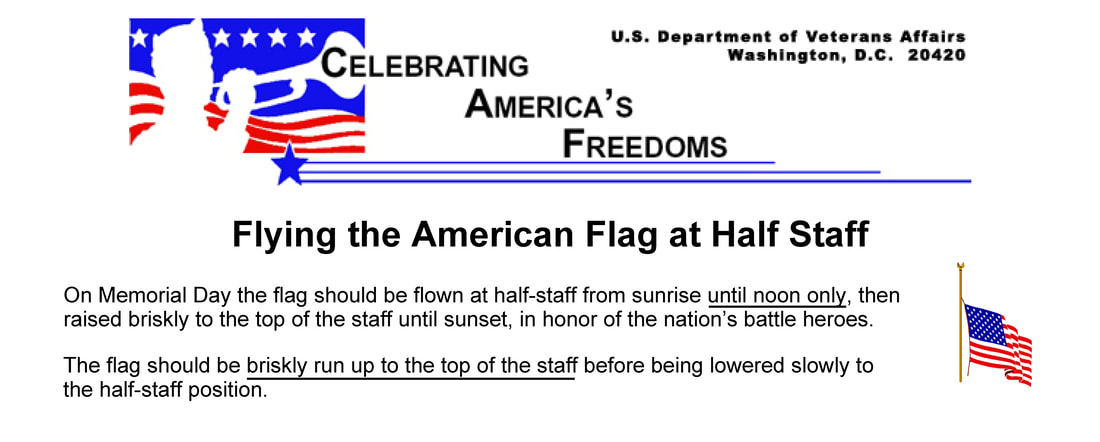Why I Stand for the National Anthem
|
|
Date Published: June 11, 2021
Date Modified: August 11, 2023 |
Photograph by A. Gardner entitled "A Harvest of Death, Gettysburg" from the Library of Congress: [here].
"It is for us the living, rather, to be dedicated here to the unfinished work which they who fought here have thus far so nobly advanced. It is rather for us to be here dedicated to the great task remaining before us — that from these honored dead we take increased devotion to that cause for which they here gave the last full measure of devotion — that we here highly resolve that these dead shall not have died in vain — that this nation, under God, shall have a new birth of freedom, and that government of the people, by the people, for the people, shall not perish from the earth."
Abraham Lincoln, Overlooking this Gettysburg Battlefield a Few Months Later, November 19, 1863
Standing for Bravery, Respect, Tolerance and Forgiveness
|
Presumably, those who take a knee during the national anthem believe that the United States of America is imperfect.
So do I, but I stand. For more than two hundred years, men and women have known that this was an imperfect country, but they have sacrificed to preserve it anyway. One President, knowing full well how imperfect his country was, gave his life for it. This man trusted in human nature. He believed that if he could just contain slavery’s expansion it would gradually collapse under the weight of its own oppression. But others desired war and left him no choice. So to preserve an imperfect union, an imperfect leader called imperfect men to fight a particularly imperfect war with weapons that demanded hand-to-hand combat, mutilated more than it killed, and left the majority dead from sickness and disease. |
Over the course of a few days at Gettysburg there were 51,000 casualties—dead, wounded, injured, sick, captured or missing in action; over the course of the war, our nation saw more than five percent of its 1860 adult male population killed in the line of duty. As a percentage of today’s population, this means that in a single battle there was the equivalent of a half-million combatant casualties, and by the end of the war every adult male in the combined cities of New York, Los Angeles and Chicago was dead. [See Footnote #1]
This war opened wounds, some of which haven’t healed to this day.
Abraham Lincoln thoroughly understood his inadequacies and imperfections. He most likely saw them deep in the questioning eyes of the frightened boys he called to service. Yet the Commander-in-Chief actively sought out the solders in the field, and his concern for them took its toll. One soldier who marched passed his president observed, “He was on horseback, and his severely plain, black citizen’s dress set him in bold relief against the crowd of generals in full uniform. . . we passed close to him, so that he could look into our faces and we into his. . . None of us to our dying day can forget that countenance. . . he is bearing the burdens of the nation. It is an awful load; it is killing him. . . he is not long for this world.”
This war opened wounds, some of which haven’t healed to this day.
Abraham Lincoln thoroughly understood his inadequacies and imperfections. He most likely saw them deep in the questioning eyes of the frightened boys he called to service. Yet the Commander-in-Chief actively sought out the solders in the field, and his concern for them took its toll. One soldier who marched passed his president observed, “He was on horseback, and his severely plain, black citizen’s dress set him in bold relief against the crowd of generals in full uniform. . . we passed close to him, so that he could look into our faces and we into his. . . None of us to our dying day can forget that countenance. . . he is bearing the burdens of the nation. It is an awful load; it is killing him. . . he is not long for this world.”
|
The soldier continued, “Concentrated in that one great, strong yet tender face, the agony of the life or death struggle of the hour was revealed as we had never seen it before. With new understanding we knew why we were soldiers.” That day two leaders understood each other’s imperfections: one sat in command upon a horse and the other marched by in review. It was just that Lincoln was called: to call others into battle.
Considering the burdens that so many have borne to preserve this imperfect union, a quarterback is a leader of men in an insignificant game. Still, on the football field he feels imperfection when he is blindsided because of a missed block; he sees imperfection when a receiver runs the wrong pattern; and he displays imperfection when he fumbles a handoff or throws an interception. What if, after every mistake the quarterback makes, the front line takes a knee on the next snap of the ball just to impress his shortcomings upon him. It would not make him a better quarterback and it would divide the team. True teammates either address or adjust to these deficiencies to build a more-perfect team. Taking a knee before imperfection doesn’t accomplish anything. |
"He looked into our faces and
we into his." |
If a person was true and consistent to such a philosophy, it would require him or her to constantly be on their knees because all organizations, no matter their glorious names or wondrous promises or greatest achievements, are just associations of like-minded beings filled with flaws.
But when two human beings accept their imperfections – that they will always fall short of each other’s expectations – it empowers them as respectful, humble and imperfect creations to look into each other’s face. There they discover both weakness and strength. And it is our shared strengths, not our common weaknesses, that drive stadiums full of imperfect beings to stand in unity and shed tears over brothers lost in so many wars that we can’t even name all the battles, much less give face to all the soldiers now at rest on our behalf.
But when two human beings accept their imperfections – that they will always fall short of each other’s expectations – it empowers them as respectful, humble and imperfect creations to look into each other’s face. There they discover both weakness and strength. And it is our shared strengths, not our common weaknesses, that drive stadiums full of imperfect beings to stand in unity and shed tears over brothers lost in so many wars that we can’t even name all the battles, much less give face to all the soldiers now at rest on our behalf.
|
They looked into each other’s face, and there they discovered both weakness and strength.
|
These soldiers were imperfect beings. They were good-hearted and bigoted, heroic and fearful, giving and selfish, noble and base. In a time of our country’s greatest need, they pushed bayonets through fellow countrymen in the hope of preserving a more-perfect union. In a time of our world’s greatest need, they struggled ashore on the beaches of a foreign continent to rescue its inhabitants from one who was as perfectly‑imperfect as we have ever known.
They rescued all races, creeds and colors; and to survive as a nation, we will most assuredly require more to die for our children and grandchildren. Our youngsters will even sacrifice their lives for those that take a knee, even though they may see kneeling during the national anthem as a sign of deep disrespect. Our country will continue to produce such selfless men and women, because the following defines who we are as a nation: we live in the land of the free not only because it is the home of the brave, but it is also the home of the respectful, the tolerant, and the forgiving. |
Taking a knee is an absolute right, but it is absolutely not part of our heritage. You may choose to kneel, but I chose to stand; because we who stand together, we who put aside our individual differences, and we who combine our strengths, will always be stronger and closer to perfection than any country where a citizen lacks the freedom to take a knee.
The United States of America is the hope of the world because it is—still, the most perfect union of like-minded imperfections.
Yes, every man is imperfect, but there is nothing that brings a man or woman closer to perfection than when they are prepared to lay down their life for another. We will live in peace only so long as the imperfect stand ready to make this perfect sacrifice. Look into your heart to see your own imperfections and then look into the faces of those who serve.
In their eyes you will find why they wear a uniform: to protect us, their imperfect brethren.
This imperfect man stands in their honor . . . and on Memorial Day—in their memory.
- Pete
The United States of America is the hope of the world because it is—still, the most perfect union of like-minded imperfections.
Yes, every man is imperfect, but there is nothing that brings a man or woman closer to perfection than when they are prepared to lay down their life for another. We will live in peace only so long as the imperfect stand ready to make this perfect sacrifice. Look into your heart to see your own imperfections and then look into the faces of those who serve.
In their eyes you will find why they wear a uniform: to protect us, their imperfect brethren.
This imperfect man stands in their honor . . . and on Memorial Day—in their memory.
- Pete
Select image to read the complete rules of "United States Flag Etiquette" on the Veterans Affairs website.
[Footnote #1] This article uses information and images from Ida Tarbell’s The Life of Abraham Lincoln and Father Abraham which are in the public domain because these books were published before January 1, 1928, and it utilizes statistics from the Civil War Trust and United States QuickFacts.
